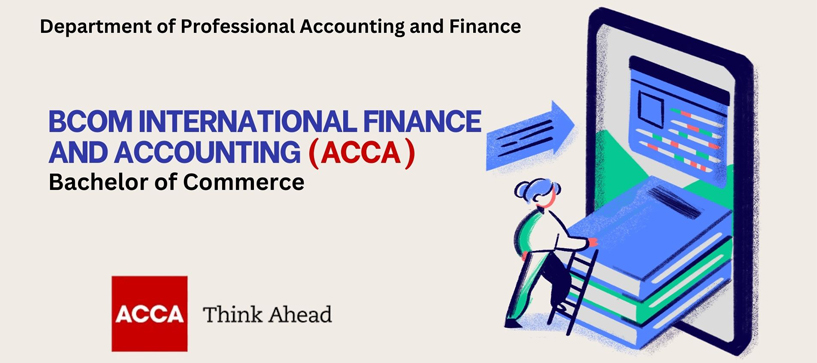
B.Com International Finance and Accounting (ACCA)
The B.Com International Finance and Accounting programme integrates the Association of Chartered Certified Accountants (ACCA, UK) curriculum, preparing students for globally recognized qualifications in accounting and finance. The programme bridges academic knowledge with international financial standards, equipping students to build careers across the globe. For students aspiring to have a successful career in accounting, finance, or business, this integrated programme is a valuable opportunity to gain both an academic degree and a professional qualification in a streamlined manner.
Eligibility for Admission
Candidates who have completed Higher Secondary (10+2 / PUC) or Equivalent with an aggregate of 40% or an equivalent CGPA and have studied Accountancy as one of the subjects are eligible.

